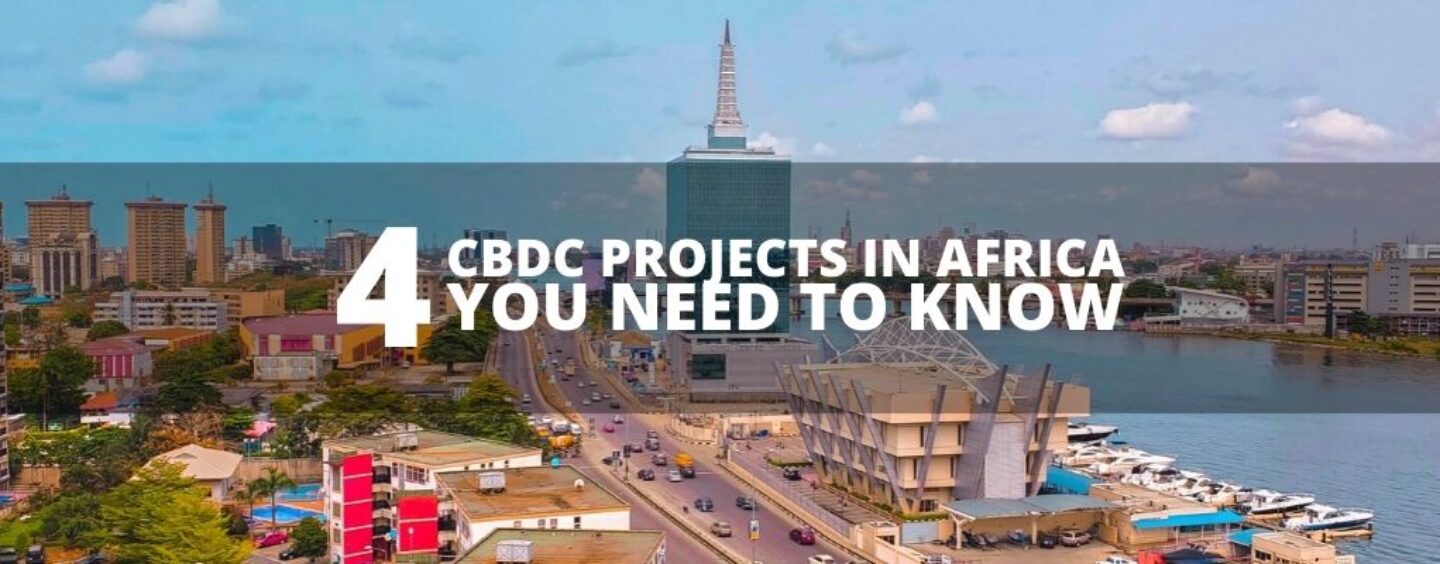Central bank digital currencies, or CBDCs, are not a new concept to Africa. Multiple CBDC projects in Africa currently exist, even amidst a wider fintech boom across the continent.
In an interview, Dr. Co-Pierre Georg, an expert on CBDCs, explains the attractiveness and relevance of these digital currencies to the African economy. Apart from reinforcing control over the supply and circulation of money in the digital age, these CBDCs are able to overcome the challenges of existing payments infrastructures, which are not built for low value transactions.
Further, they also give tech companies and startups, especially those in the ecommerce or fintech space, a digital standard on which they can further innovate.
Which countries are testing CBDC projects in Africa
CBDC projects in Africa can largely be classified across three stages. Some, such as those in Nigeria and South Africa, are in the pilot stage. Here, central banks of these countries have made definitive steps towards launching CBDCs within a specified timeline. Nigeria, for instance, is gearing up for a launch the very next month.
Most other CBDC projects in Africa are at varying phases of development. For instance, Egypt and Mauritius have announced plans to launch a CBDCs soon, although developments following these announcements have been unclear.
Some others, such as Eswatini, are at the research and feasibility testing stage, whereas countries such as Rwanda, Kenya and Tunisia have simply expressed intent to explore CBDCs. Interestingly, while Tunisia does not have a CBDC of its own, it has been working with France’s central bank Banque de France on CBDC experiments that would allow Tunisian diaspora in France to remit funds back to the country.
In the third category, we have countries that have not announced any intention so far of testing a CBDC. An exception is Senegal, which experimented with an eCFA in 2016. The project was eventually called off due to compliance issues, and the central bank of the West African Economic and Monetary Union has since steered clear of CBDCs.
In all, there are 11 active CBDC projects in Africa currently, alongside an inactive project (Egypt) and Senegal’s cancelled one. Here are the four most exciting ones to watch out for.
1. Nigeria
Nigeria is spearheading CBDC projects in Africa. The country is all set to launch its CBDC, the eNaira, on October 1 this year. The eNaira, which was four years in the making, will debut on the country’s 61st Independence Day celebration this October 1. The news comes even as the Central Bank of Nigeria (CBN) continues to shun cryptocurrencies, and is being called out for a stony attitude towards tech companies.
The CBN recently announced Bitt Inc as its technical partner for the eNaira.
2. South Africa
Currently, there are two CBDC projects being trialled by the South African Reserve Bank (SARB). One, called Project Khokha 2, is testing the interbank use of a wholesale settlement token as well as a wholesale CBDC. Meanwhile, under Project Dunbar, the central banks of Australia, Malaysia, Singapore and South Africa are trialling the use of a CBDC for international settlements.
The country had started trialling CBDCs with the first Project Khokha, launched in 2018.
3. Mauritius
In a big announcement at CoinDesk’s Consensus 2021, the Governor of the Bank of Mauritius Harvest Seegolam announced that position papers on a CBDC were being finalised. What’s more, Seegolam said that the island country would be targeting a rollout of its CBDC by the end of the year. Further, the International Monetary Fund was also working closely with Mauritius in the design and planning of its digital currency, Seegolam added.
4. Ghana
The Bank of Ghana recently announced that it would be partnering with Giesecke+Devrient (G+D) to build the infrastructure for its CBDC eCedi. The eCedi is a Ghanaian adaptation of the G+D Filia, a CBDC solution based on distributed ledger technology that allows central banks to develop their own national CBDCs.
Ghana’s CBDC project will be testing across three phases, namely design, implementation and pilot.
Featured image credit: Edited from Unsplash







4 Comments so far
Jump into a conversation